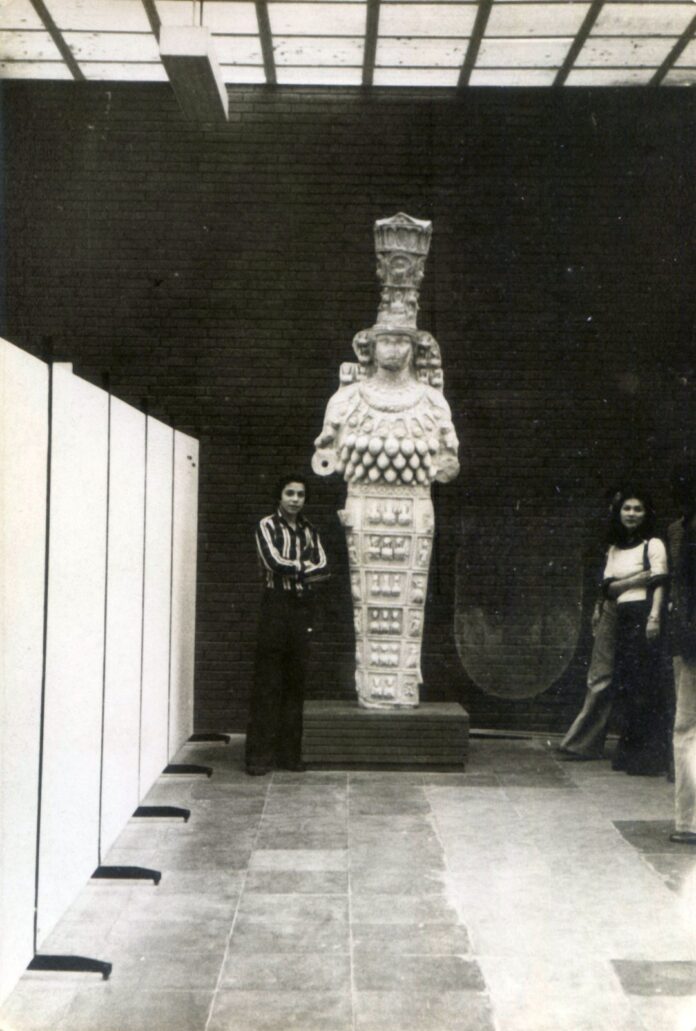6 entries found
Search filter: All Results
Anatolia ancient name of Asia Minor, from Medieval Latin Anatolia, from Greek anatole “the east,” originally “sunrise” (which of course happens in the east), literally “a rising above (the horizon),” from anatellein “to rise,” from ana “up” (see ana-) + tellein “to accomplish, perform.” Related: Anatolian.
ancient Greek city on the Aegean coast of Anatolia, the northernmost of the Ionian cities, from Greek Phōkaia; its people were noted in ancient times for their long sea-voyages and naval power. Colonists from Phocaea founded the colony of Massalia (modern Marseille, in France). Related: Phocaean.
ancient district of Anatolia on the southern coast of the Black Sea, from Latinized form of Greek Pontos “the Black Sea and the regions around it,” literally “the sea,” from a variant of the PIE root *pent- “to tread, go” that also produced Latin pons (genitive pontis) “bridge, passage;” see find (v.).
famous winged horse in Greek mythology, also the name of an ancient northern constellation, late 14c., Pegase, from Latin, from Greek Pēgasos, usually said to be from pēgē “fountain, spring; a well fed by a spring” (plural pēgai), especially in reference to the “springs of Ocean,” near which Medusa was said to have been killed by Perseus (Pegasus sprang from her blood). But this may be folk etymology, and the ending of the word suggests non-Greek origin.
Advances since the 1990s in the study of the Luwians, neighbors of the Hittites in ancient Anatolia, show a notable convergence of the Greek name with Pihaššašši, the name of a Luwian weather-god: “the mythological figure of Pegasus carrying the lightning and thunderbolt of Zeus, … is likely to represent an avatar of the Luwian Storm-God of Lightning ….” [Alice Mouton, et al., eds., “Luwian Identities,” 2013]
ancient Persian god of light or the sun, eventually regarded as ruler of the material and spiritual universe, 1550s, from Latin, from Greek Mithras, from Avestan Mithra-, from Indo-Iranian *mitram “contract,” whence *mitras “contractual partner, friend,” conceptualized as a god, or, according to Kent, first the epithet of a divinity and eventually his name. Perhaps from PIE root *mei- (1) “to change; exchange,” on the notion of “god of the contract” [Watkins].
Related to Sanskrit Mitrah, a Vedic deity associated with Varuna. “His name is one of the earliest Indic words we possess, being found in clay tablets from Anatolia dating to about 1500 B.C.” [Calvert Watkins, “Dictionary of Indo-European Roots,” 2000]. His worship was adopted by the Romans and enjoyed great popularity in the early empire. Related: Mithraic; Mithraism.
“the quince tree or its fruit,” mid-14c., plural (construed as singular) of quoyn, coin (early 14c.), from Old French cooin (Modern French coing), from Vulgar Latin *codoneum, from Latin cotoneum mālum “quince fruit,” probably a variant of cydonium malum (or a separate borrowing from the same source) from Greek kydōnion malon, which is traditionally “apple of Kydōnia” (modern Khania), a famous ancient seaport city on the north coast of Crete.
But Beekes says it is from “an older Anatolian word” and that connection with Kydōnia is Greek folk etymology. He also notes there was a Kytōnion on the Lydian border.
The plant is native to Persia, Anatolia, and Greece; the Greeks supposedly imported grafts for their native plants from a superior strain in Crete, hence the name. Kodu- also was the Lydian name for the fruit. Italian cotogno, German Quitte, etc. all are ultimately from the Greek word.
The quince has suffered a sad fall from favour in Britain. In medieval and Renaissance times it was in high popularity …. Perhaps it is the fruit’s frequent intractable hardness, needing long cooking to overcome, which has led impatient British cooks to forsake it, despite its unrivalled perfume. [John Ayto, “Diner’s Dictionary”]
https://www.etymonline.com/search?q=anatolia





















